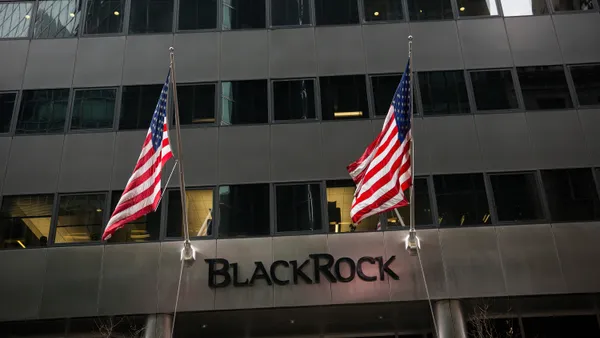Dive Brief:
- Most CFOs and other finance leaders believe that companies in their industry will fall short of their sustainability targets, and only 47% believe that their own companies will meet their net-zero goals and similar objectives on time, EY found in a survey.
- Institutional investors are a bit more optimistic, with 53% confident that companies are on track to meet sustainability goals, EY said after surveying 2,000 CFOs, controllers and other finance leaders and 815 institutional investors.
- “Customers, shareholders, regulators and investors increasingly hold companies to account for their environmental impact and commitment to sustainable practices,” Nicolas Lecoq, global financial accounting advisory services leader at EY, said Wednesday in a statement. “This means that the integrity of corporate reporting is now more critical than ever.”
Dive Insight:
CFOs leading companies active in the U.S. and Europe face a “fluid picture” when attempting to meet regulations for sustainability reporting, EY said.
Under the Corporate Sustainability Reporting Directive, roughly 50,000 companies listed in regulated markets across the European Union will need to file detailed reports on environmental, social and governance topics beginning next year.
In the U.S., the Securities and Exchange Commission trimmed requirements of a rule focused on climate risk disclosure before putting the regulation on hold in the face of legal challenges. Companies would be required to disclose the impact of climate change on their finances, operations and business strategy.
More than two-out-of-three finance leaders (69%) said they have noticed that corporate stakeholders during the past two years have asked more questions about sustainability and other “non-financial drivers of value,” EY said.
At the same time, 96% of finance leaders worry about the integrity of non-financial data and 55% believe that they could face allegations of “greenwashing” — or exaggerating their sustainability performance — because non-financial disclosures may lack verifiable data, according to EY.
Also, 55% of finance leaders expect the costs of sustainability disclosures will prove burdensome, and 44% of respondents view the rules as highly complex, EY said.
Two-out-of-five finance leaders believe artificial intelligence may help in reporting on sustainability and other facets of business, although 29% want first to better understand the risks from the technology, according to EY.
Among institutional investors, more than half (57%) believe AI could help assess the integrity and accuracy of both financial and non-financial disclosures, EY said.













